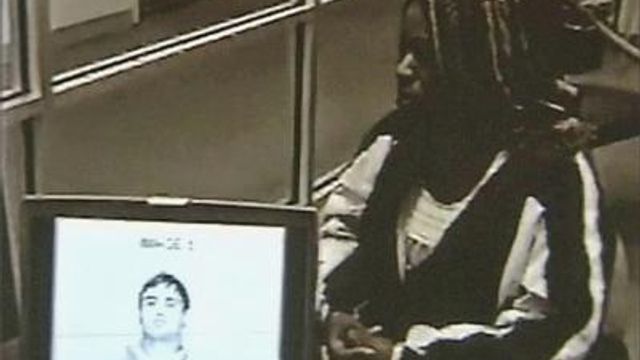Local News
AG's Probe Revealed Weaknesses in Duke Lacrosse Case
Special prosecutors found no credible evidence that an exotic dancer was attacked by three former Duke lacrosse players and that her testimony would have been contradicted by evidence in the case from numerous sources.
Posted — UpdatedRALEIGH, N.C. — Special prosecutors found no credible evidence that an exotic dancer was attacked by three former Duke lacrosse players and that her testimony would have been contradicted by evidence from numerous sources, according to a report released Friday by the North Carolina Attorney General's Office. Read the report.
"The reinvestigation led to the conclusion that there was no credible evidence to support the allegation that the crimes occurred. The new investigation revealed additional weaknesses in the State's case based on the case files that had already been developed," the 21-page report says.
It comes more than two weeks after Attorney General Roy Cooper dismissed charges of first-degree sexual assault and first-degree kidnapping against David Evans, Reade Seligmann and Collin Finnerty and declared them innocent of all charges they faced in connection with an exotic dancer's claims she was raped, sodomized and beaten at a party in March 2006.
Durham County District Attorney Nifong dismissed rape charges in December after the accuser, Crystal Gail Mangum, changed key details of her story.
"We are pleased that the public will finally see the details of the exhaustive investigation performed by the attorney general's office, which proves what we have said all along and what the attorney general said on April 11th," Evans' attorneys, Joseph Cheshire and Brad Bannon, said in a written statement. "Dave, Collin and Reade are innocent and there simply was no physical or sexual assault whatsoever."
Nifong's attorney, David Freedman, declined comment to The Associated Press because he had not read the report.
According to Friday's report, Mangum's credibility would have been suspect based on previous encounters with law enforcement, her medical history and inconsistencies with her statements.
In meetings with special prosecutors, Mangum "changed her story on so many important issues as to give the impression that she was improvising as the interviews progressed, even when she was faced with irrefutable evidence that what she was saying was not credible."
She denied to special prosecutors that she had made statements attributed to her in medical and police reports on the night of the alleged attack and in the following days.
"Significantly, on several occasions, when confronted with evidence that contradicted her assertions, she changed her story," the report said.
In the early-morning hours of March 14, Mangum was taken to the Durham Access Center -- an organization that offers access to mental health, substance abuse services -- where a nurse asked her if she had been raped.
"The accusing witness answered in the affirmative," the report says. "This was the first time she had indicated to anyone that she had been the victim of a sexual assault."
"(She) did not disclose that any sexual assault occurred to the first law enforcement officer she encountered that night, Sgt. J.C. Shelton," the report also says.
Mangum told Shelton that she was "pulled from the car … and groped" but "no one forced her to have sex." She later told another officer at the hospital she was penetrated by five men.
The sexual assault nurse examiner at Duke University Medical Center based her opinion that rape had occurred not on objective evidence but on what Mangum was reporting and on her demeanor and complaints of pain.
Accounts of Mangum's behavior at the party demonstrate that she was "significantly impaired, the report said when she arrived at the party.
"By her admission, the prosecuting witness drank two large beers in the hour or so before arriving to the party."
Witnesses said she was stumbling and unsteady when she arrived and throughout the night. Video evidence from when she left the party shows her unable to walk and in the audio, professing to be a cop, the report said.
Special prosecutors witnessed a similar behavior when meeting with Mangum on April 4, 2007, during the time she acknowledged having taken multiple prescription drugs: Paxil and amitriptyline, which are used to treat depression, Ambien, a drug relaxer, and methadone, a detox treatment for narcotic addiction.
"The accusing witness demonstrated unsteady gait, slurred speech and other mannerisms that were consistent with behaviors observed by numerous witnesses … and confirmed through a video taken that night," the report said.
Special prosecutors also looked at DNA evidence and a series of photographic lineups in which Mangum identified Evans, Finnerty and Seligmann, calling the process "of questionable validity."
The report says that Mangum could not identify any of the alleged attackers three days after the party with 100 percent certainty and only identified Seligmann with 70 percent certainty.
At a third lineup in April, which showed only photos of lacrosse players, she was able to identify Seligmann and Finnerty with 100 percent certainty but only Evans, who had the most contact with her at the party, with "about 90 percent certainty."
In a meeting with special prosecutors, Mangum told them she was good at remembering faces, but she claimed she did not know the Durham police officer who spent more than five hours interviewing her on March 14, 2006.
Report Raises More Questions for Nifong
Special prosecutors spent 12 weeks poring over more than 7,000 documents, reviewing more than 600 photographs and interviewing dozens of people, including 17 Duke lacrosse players, Durham police investigators and Nifong.
Nifong recused himself from the case in January, amid mounting scrutiny over his handling of the investigation and charges from the North Carolina State Bar that he violated rules of professional conduct.
That's when Cooper appointed special prosecutors Mary Winstead and James Coman with his office to review the case.
Friday's report says special prosecutors met with Mangum a number of times and questioned her about inconsistencies in her stories. It continues to say: "This was apparently the first time these questions of inconsistencies had been formally asked."
"It's going to be some real questions at the State Bar proceedings on why he kept going forward based on the revelations in this report," former federal prosecutor Dan Boyce said.
The State Bar's original complaint lists more than 100 examples of public statements Nifong made to the media early on in the investigation and said, in part, that he made comments that had a "substantial likelihood of heightening public condemnation of the accused."
Weeks later, the State Bar amended the complaint, accusing Nifong of lying to defense attorneys and the sole judge presiding over the case and withholding DNA evidence that indicated no matches between any of the indicted players and evidence from Mangum.
Those tests also showed DNA from one or more men who were not at the party was present on rape kit items.
Nifong goes to trial before the State Bar's disciplinary committee June 12, and if found guilty, could be disbarred.
Legal experts have said that Nifong could also face civil lawsuits and a criminal investigation for the way he handled the case. And there have been several calls from Durham resident Elizabeth Brewer and Finnerty's New York attorney for Nifong to resign as district attorney.
"Mr. Cooper may have just made himself and the other two attorneys prosecuting the case witnesses in the State Bar proceedings," Boyce said. "Or possibly, the proceedings in Durham County Superior Court if the judge decides to go back and revisit whether he should remove Mr. Nifong from office -- or possibly later in any criminal or civil proceedings if they occur."
• Credits
Copyright 2024 by The Associated Press. All rights reserved. This material may not be published, broadcast, rewritten or redistributed.





